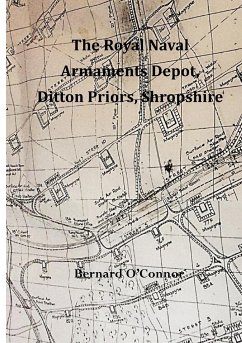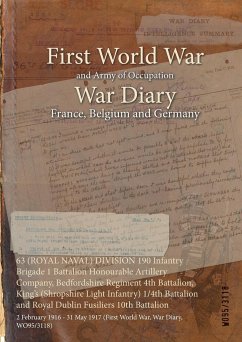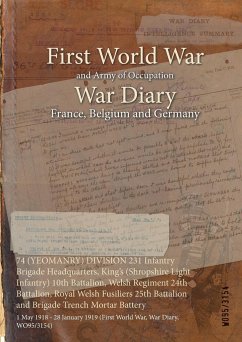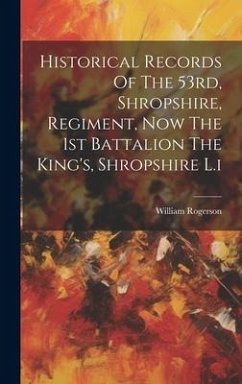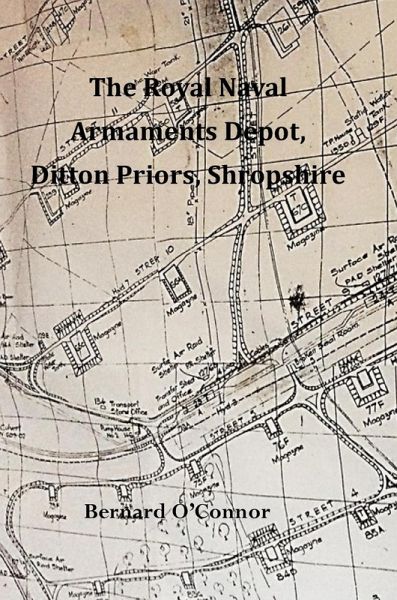
The Royal Naval Armaments Depot, Ditton Priors, Shropshire

PAYBACK Punkte
27 °P sammeln!
Shortly after the start of the Second World War, the British Admiralty compulsorily purchased land near Ditton Priors, Shropshire, to store armaments. Using the Cleobury Mortimer and Ditton Priors Light Railway, thousands of tons of shells and high explosives were brought by train to be assembled and stored in specially-built magazines protected by 'batter mounds'. Every weekday, up to thirty buses brought in several hundred men and women from surrounding villages and towns and took them back after work. They all signed the Official Secrets Act. To avoid fires, no smoking and no newspapers wer...
Shortly after the start of the Second World War, the British Admiralty compulsorily purchased land near Ditton Priors, Shropshire, to store armaments. Using the Cleobury Mortimer and Ditton Priors Light Railway, thousands of tons of shells and high explosives were brought by train to be assembled and stored in specially-built magazines protected by 'batter mounds'. Every weekday, up to thirty buses brought in several hundred men and women from surrounding villages and towns and took them back after work. They all signed the Official Secrets Act. To avoid fires, no smoking and no newspapers were allowed on site, Eating sweets was forbidden as the acetic acid was said to be corrosive. There were no electric lights or heating in the magazines and laboratories. Trolleys laden with ammunition were hauled by small tractors from a railway siding. Trucks carried crates of assembled armaments to naval docks around Britain until, twenty years after the end of the war, the Depot became surplus to the Navy's requirement. Employees were transferred to other depots or accepted redundancy. Arrangements to sell the land back to the original owners were cancelled when the British government allowed the American Army to store 22,000 tons of their armaments. Legal disputes followed. Questions were raised in parliament. When the Americans moved out in 1967, most of the land was sold to its original owners. In the 1980s there was a scare when it was claimed that the Russians had allocated two nuclear weapons to target Ditton Priors. Today, part of the Depot has become an industrial estate. The rest is hidden by trees and gradually becoming overgrown by vegetation. Bernard O'Connor's documentary history of the Royal Naval Armament Depot in Ditton Priors uses accounts and illustrations found in local history books, newspapers, government and the construction company's correspondence, websites and interviews with local people who remembered working there.



